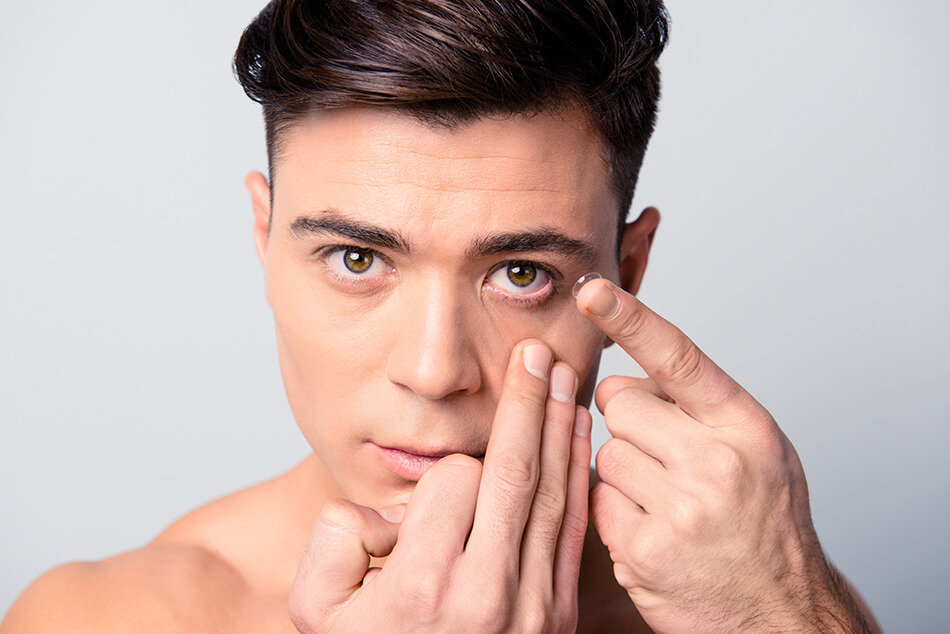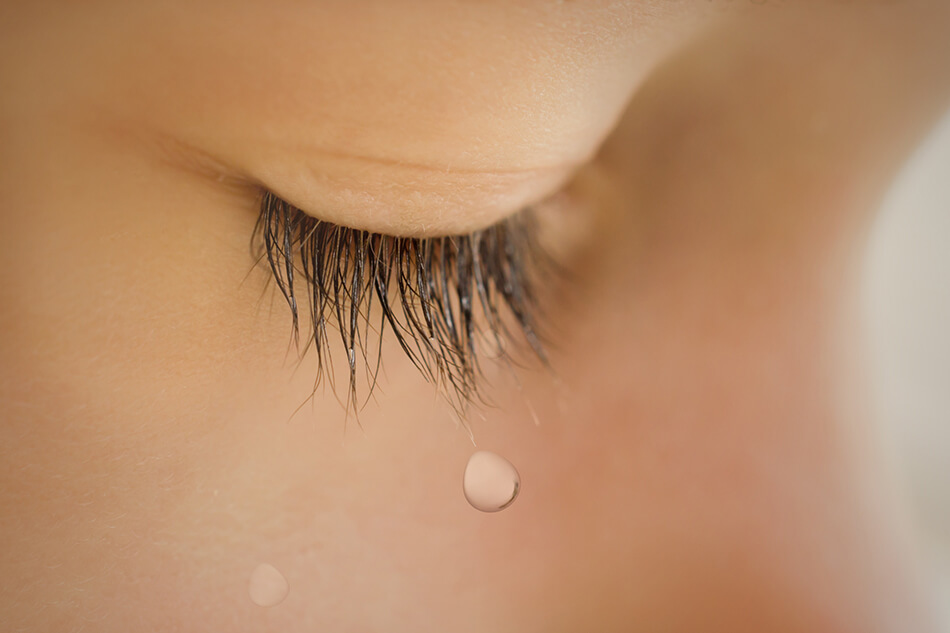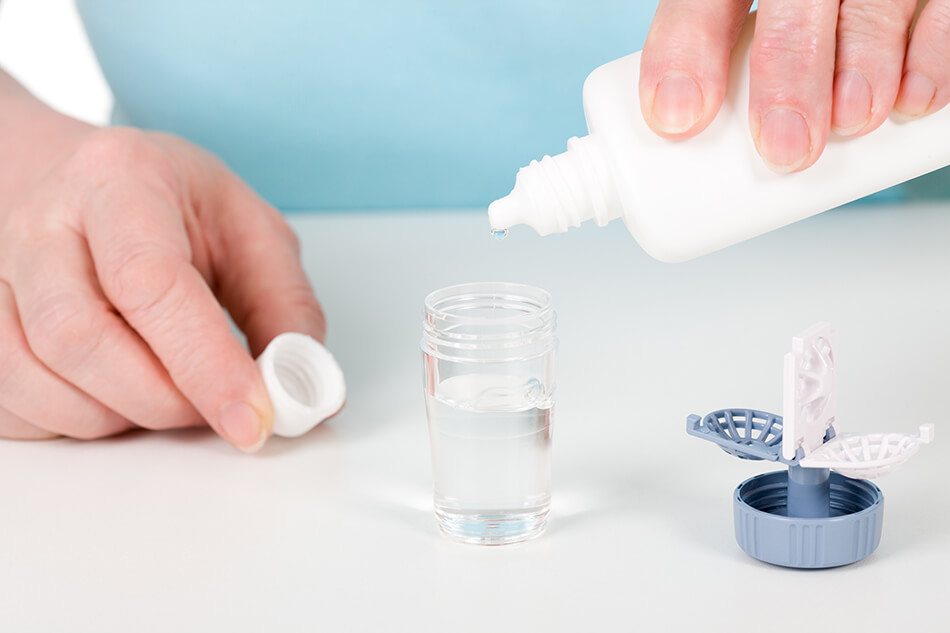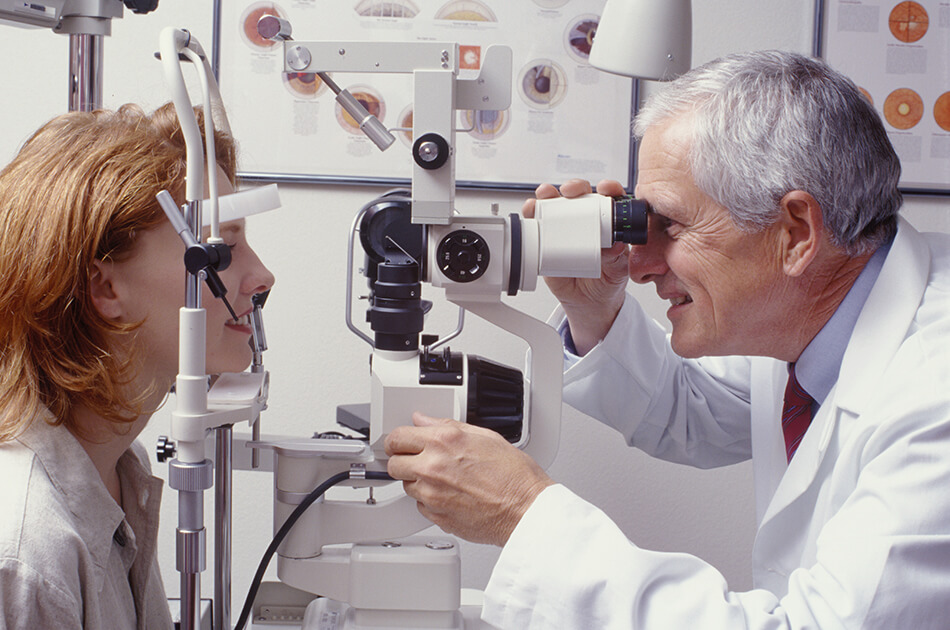What You Need to Know About Contact Lenses and General Eye Health

Many people have vision problems. Of these, approximately 45 million wear contact lenses. But, are contacts safe for general eye health? If you wear contacts, now or in the future, here’s some good news for you!
Contact lenses are very safe - as long as you follow your doctor’s recommendations.
However, contacts may damage your eyes if you:
- Keep contacts in your eyes too long
- Do not clean your contact lenses as directed
- Do not replace your contacts as often as prescribed
Remember, a contact lens is a medical device and is regulated by the FDA. This means that in order to wear contacts, you need a prescription issued by a licensed eye professional. It also means that general eye health depends on compliance.
Eye Health and Contact Lenses Study
Researchers at the American Society for Microbiology have tested whether there were changes in the eye microbiota due to contact lenses. The eye has its own population of bacteria which lives in symbiosis with the host to help protect the eye from infection. The thought was that adding a foreign object, such as a contact lens would create an imbalance of bacteria in the eye and cause health issues resulting in redness and inflammation.
While the results showed that contact lens wearers had higher levels of certain bacteria and lower levels of others as compared to non-lens wearers, both showed a higher proportion of hand-like bacteria rather than face-like bacteria in the eye. This means invasive bacteria from the hands were present in both groups and contact lenses could not be identified as a significant factor in increasing bacteria levels.
The study also suggested that wearing contact lenses can increase the risk of developing microbial keratitis or other inflammatory eye condition. This is due to the possible decrease of the ecosystem’s resilience and self-restoring capacity within the eye. Both of which can be protected against in a healthy eye through tears that can provide a constant chemical environment to keep the eye healthy. Further study is needed.

Eyes Need Oxygen
The reason behind the inflammation may be a lack of oxygen. Contacts sit on the eye, covering the cornea. This decreases the amount of oxygen that gets to the eyes. Without oxygen, general eye health diminishes.
To help your eyes get enough oxygen, you can:
- Wear your contacts only as long as your eye doctor suggests
- Replace your contacts on a regular schedule
- Wear silicone hydrogel contact lenses for more oxygen flow to the eyes
If you can’t wear silicone hydrogel lenses, try rigid gas permeable lenses. These are designed to cover less of the eye and move around when the wearer blinks.
Keep Everything Clean
Another factor that keeps your eyes healthy is cleanliness. When wearing contacts, the user increases their chance of getting an infection. Bacteria get on the contacts and stays there, breeding in the eye. This is especially true when contacts are older and have deposits on the lenses.
Eye infections are not common in contact wearers. In fact, less than 1% of people wearing contacts ever get an infection. However, getting an infection can seriously damage your eyes. Here’s how to decrease your chance of infection.

Ways to Prevent Infection
- Clean your contacts regularly
- Disinfect your contacts regularly
- Use the proper eye solution (ask your eye doctor)
- Rub your lenses to remove deposits even if using a no-rub solution
- Rinse your storage case with fresh contact solution before storing contacts
- Replace your storage case quarterly
- Never reuse contact solution - only use fresh solution to store contacts
Replace as Directed
In addition to cleaning your contact lenses properly, you also need to replace them as directed.
Some people assume that if contacts look okay and aren’t uncomfortable, there’s no need to throw them away. However, wearing your contacts longer than the manufacturer recommends can cause serious problems.
In fact, studies show that the risk of infections is 5.4 times higher for those that wear their contacts longer than prescribed.
Failing to replace your contact lenses on time can result in a buildup of deposits. This will:
- Make it more difficult to see clearly
- Cause eye infections
- Make your eyes feel dry and irritated
- Reduce the amount of oxygen that reaches the cornea
As you can see, keeping your contacts longer than prescribed can lead to eye health complications. Therefore, you should always follow your replacement schedule.
Here are some things to help you achieve this goal:
- Order new contacts before your last month’s supply is opened
- Schedule an eye exam two months before your prescription expires
- Replace your lenses on specific days: For two-week lenses, replace them on the 15th and 30th of each month.
Wear Only for the Prescribed Amount of Time

Many contact wearers keep their contacts in longer than prescribed. For instance, daily contact wearers will sleep in their contacts, while weekly contact wearers might reuse them for one month. Both scenarios can cause eye problems, including corneal neovascularization.
Corneal neovascularization occurs when your eyes don’t get enough oxygen. When this happens, the blood vessels in your eyes grow larger. When they get too large, doctors will no longer be able to fit you for contacts.
You may also develop a corneal ulcer. This is a sore on the cornea caused by infection. This may lead to blindness or the need for a corneal transplant.
Have Regular Eye Exams

Finally, see your eye care practitioner as directed. Most contact lens wearers see their eye doctor once a year. However, if you have complications, special lenses, or a known eye disease or condition, you may want to see them more often. Since federal law dictates that contact lens prescriptions expire after one year, seeing your eye doctor is a must if you continue to wear contacts.
In addition to getting your prescription, having an eye exam will:
- Check your general eye health
- Look for glaucoma or macular degeneration
- Detect early contact lens problems
- Ensure the fit of your contacts is correct
Your eye doctor knows how to detect small problems with your eyes before they become big problems. Seeing your eye doctor regularly will allow you to wear contacts and keep your eyes healthy at the same time.
In conclusion, wearing contacts does not hurt the general health of your eye as long as you follow the directions of your eye doctor.
Be sure that you see your eye doctor regularly, replace your contacts as directed, and wear your contacts for the right amount of time. If you do, then you can enjoy wearing contacts safely, without any issues.